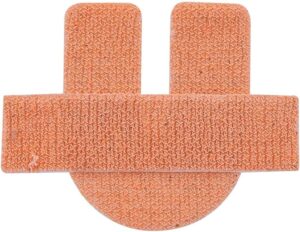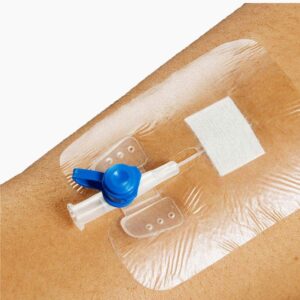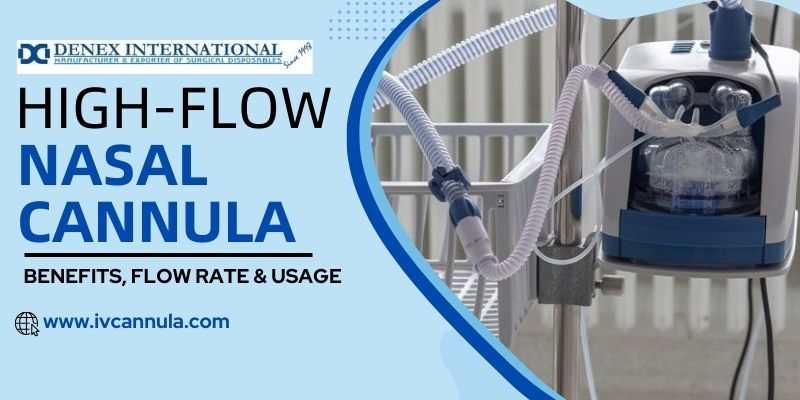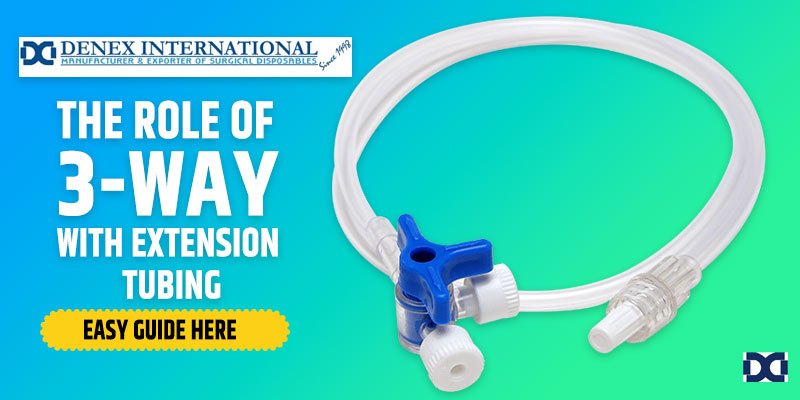Welcome to Denex International’s comprehensive guide to IV cannula fixators. As a leading manufacturer of IV cannulas, we understand the importance of securing these medical devices properly. In this blog post, we’ll explore everything you need about IV cannula fixators, including their uses, benefits, and tips for optimal application.
Understanding IV Cannula Fixator:
An IV cannula fixator, also known as a cannula fixer or cannula tape, is a medical adhesive device to secure intravenous (IV) cannulas. These fixators are designed to prevent the cannula from shifting or dislodging during medical procedures or patient movement, ensuring continuous delivery of fluids and medications.

Types of IV Cannula Fixators:
IV cannula fixators are available in different types and designs to accommodate various patient needs and medical requirements. Some common types of cannula fixators include:
Adhesive Fixators: These fixators feature an adhesive backing that adheres securely to the patient’s skin, providing reliable fixation of the IV cannula without additional securing devices.

Transparent Film Dressings: Transparent film dressings provide a protective barrier over the IV insertion site while securing the cannula. These fixators offer visibility of the insertion site for easy monitoring and are suitable for patients with sensitive skin.

Uses of IV Cannula Fixator:
IV cannula fixators are essential components of medical care in various healthcare settings, including hospitals, clinics, and home healthcare. Some common uses of IV cannula fixators include:
Secure Placement: The primary purpose of an IV cannula fixator is to secure the cannula in place once it has been inserted into a patient’s vein. This prevents accidental dislodgement and ensures an uninterrupted flow of fluids and medications.
Patient Comfort: Properly securing the IV cannula with a fixator helps enhance patient comfort by reducing movement-related discomfort or pain at the insertion site. It also minimizes the need for frequent reinsertion of the cannula, which can be uncomfortable for patients.
Facilitates Medical Procedures: IV cannula fixators play a crucial role in promoting various medical procedures that require continuous intravenous access, such as infusion therapy, blood transfusions, and administration of medications.
Promotes Safety: By securely anchoring the IV cannula, fixators help reduce the risk of complications associated with accidental dislodgement, such as infiltration, extravasation, or infection.
Benefits of IV Cannula Fixator:
Using IV cannula fixators offers several benefits for healthcare providers, patients, and medical facilities:
Improved Patient Safety: Proper fixation of IV cannulas with fixators reduces the risk of complications such as accidental dislodgement, infiltration, or infection, enhancing patient safety and well-being.
Enhanced Comfort: Securely anchoring the IV cannula with a fixator helps minimize movement-related discomfort or pain at the insertion site, promoting patient comfort and compliance with treatment.
Cost-Effectiveness: By preventing the need for frequent cannula reinsertion due to dislodgement, IV cannula fixators contribute to cost savings for medical facilities and healthcare providers.
Convenience and Ease of Use: IV cannula tapes are easy to apply and remove, providing healthcare providers with a convenient solution for securing IV access without compromising patient care.
Tips for Applying IV Cannula Fixator:
To ensure effective and secure placement of IV cannula fixators, follow these tips:
Prepare the Skin: Clean and dry the skin around the IV insertion site before applying the fixator to ensure proper adhesion and prevent skin irritation.
Select the Right Size: Choose a fixator size that matches the diameter of the IV cannula and provides adequate coverage of the insertion site.
Apply Firm Pressure: Apply firm but gentle pressure to the fixator after application to ensure proper adhesion and secure fixation of the IV cannula.
Monitor for Complications: Regularly monitor the IV insertion site and fixator for signs of complications such as redness, swelling, or leakage, and promptly report any concerns to healthcare providers.
Conclusion:
In conclusion, IV cannula fixators are vital in securing intravenous access and ensuring the safe and effective delivery of fluids and medications to patients. By understanding the uses, benefits, and proper application techniques of IV cannula fixators, healthcare providers can enhance patient safety, comfort, and overall quality of care. At Denex International, we are committed to providing high-quality IV cannula products and accessories to meet the diverse needs of healthcare professionals worldwide. Please visit our website or contact us directly for more information about our products.







